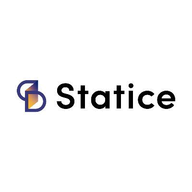-
Metiquity Ventures Leads Investment Round in Calgary’s Black Owl Systems
metiquity.ca - Lease Accounting Software from Black Owl Systems
🌱 Seed
$285K
-
Metiquity Ventures -
TableSprint raises 1 mn in seed round funding
entrackr.com - The AI platform to build Future-Ready Apps.
🌱 Seed
$1M
$1M
Ankit Bhati, Ajeet Khurana, Sunil Sharma, BlueLotus Ventures, TDV Partners, DGC Ventures, and Abhijeet Bhandari. -
Cohere raises $500M to beat back generative AI rivals
techcrunch.com - Cohere, a generative AI startup co-founded by ex-Google researchers, has raised $500 million in new cash from investors including Cisco, AMD and Fujitsu. The round, which also had participation from Canadian pension investment manager PSP Investments and Canada’s export credit agency EDC, values Toronto-based Cohere at $5.5 billion, according to Bloomberg. That’s more than double the startup’s valuation from June 2023, when it secured $270 million from Inovia Capital and others, and brings Cohere’s total raised to $970 million.
🌱 Seed
$500M
$5.5B
Cisco -
Clodura.AI raises $2 million in funding round led by Bharat Innovation Fund
www.moneycontrol.com - Your GenAI powered sales co-pilot, from prospecting to closing.
🌱 Seed
$2M
-
Bharat Innovation Fund -
Elatra Raises $200K in Funding
www.finsmes.com - Digital coaching platform tailored to tech businesses to amplify people's performance, engagement and loyalty
😇 Angel
$200K
-
Angel investors -
IP monitoring start-up GreyScout raises €3.5m
www.businesspost.ie - GreyScout, a leading SaaS platform for online brand protection, has announced a €3.5 million seed investment, bringing their total raised to €4.5 million. This round, jointly led by Act VC and Tribal, and participation from Furthr VC, Enterprise Ireland, and HBAN, reaffirms GreyScout’s commitment to safeguarding brands against the digital threats of grey market selling and counterfeiting.
🌱 Seed
$3.7M
-
Act VC, Tribal -
Announces $21 Million Series B Funding Round Led by Fulcrum Equity Partners to Further Accelerate Growth
www.fieldpulse.com - FieldPulse, a leading software provider in the field service industry, today announced a $21 million Series B funding round led by Fulcrum Equity Partners. The round also saw continued participation from current investors, Capri Ventures and Superseed Ventures.
💰 Series B
$21M
-
Fulcrum Equity Partners -
Zakeke Secures €2 Million in Landmark Investment Round
www.zakeke.com - Zakeke, the world-leading SaaS company in the Visual Commerce landscape, offering brands advanced tools like live product personalization, superior 3D visualization, Augmented Reality, and Virtual Try-On, has successfully finalized a €2 million SAFE (Simple Agreement for Future Equity) investment round, championed by the esteemed Private Equity Fund Berrier Capital, driving forward Zakeke’s ambitions for expansive global growth. This new investment round for Zakeke brings another significant update: the esteemed Stefano Venturi, currently serving as the President of Cefriel, and formerly the CEO of both Hewlett Packard Enterprise Italy and Cisco Systems Italy, has taken a seat on Zakeke’s Board of Directors.
🌱 Seed
$2M
-
Berrier Capital -
SaaS startup AuditCue raises $1.5 million in funding round led by Kalaari Capital
economictimes.indiatimes.com - Reimagine how risk, audits & controls work together.
🌱 Seed
$1.5M
-
Kalaari Capital -
NSF Grant Awarded to Enhance GRASS GIS Ecosystem
grass.osgeo.org - The goal of this project is to modernize software infrastructure and strategically grow the GRASS community to achieve a technologically and socially sustainable open-source ecosystem that provides scientists a foundation for novel, interdisciplinary research that will be accessible, reproducible, and ready for further innovations. The project aims to facilitate the adoption of GRASS GIS as a key geoprocessing engine by a growing number of researchers and geospatial practitioners in academia, governments, and industry. To achieve a technologically sustainable ecosystem with broader access to GRASS algorithms and models, the project will modernize and expand software distribution, increase security and quality assurance, and simplify maintenance of GRASS integrations with other software (such as R and QGIS). Streamlined contributor onboarding procedures and both remote and in-person training, mentoring, and promotion activities will encourage researchers to contribute new geospatial algorithms and models. Onboarding and teaching materials that are integrated in automated testing will significantly lower the costs to the developer community for maintaining this sophisticated software environment. The project aims to grow the community of GRASS users, contributors, and developers worldwide through engagement activities such as cross-project meetups, developer summits, community sprints, online and in-person training and one-on-one contributor mentoring. International involvement and diversity in project governance will be addressed by working with the GRASS Project Steering Committee to establish focused work groups that will implement policies ensuring an inclusive environment and high-quality contributions. Expanding the number and diversity of contributors from academia and research, non-profits, and industry will facilitate development of new geoprocessing engine features and ensure long-term maintenance of contributed research models. It will also enable faster development of geoprocessing tools to address major societal challenges linked to a location and place. The NSF grant is an acknowledgement of the critical role GRASS GIS plays in addressing complex challenges across various domains and represents an exciting opportunity for the GRASS community to grow and innovate.
😇 Angel
$1.5M
-
U.S. National Science Foundation (NSF) -
Outverse wants to build a full-stack community platform for software companies
techcrunch.com - Permanently clear your support bottlenecks with Al
🌱 Seed
$6M
-
Wing VC -
GoWit Raises $1 Million in Funding
www.linkedin.com - GoWit, a startup focused on omnichannel retail media advertising solutions, has secured an $1 million investment in its first financing round.
💰 Pre-Seed
$1M
-
ESAS Holding, Alarko Holding, APY Ventures, Mindvest -
Coffee Roast Unveils Innovative Ratings and Reviews Website for Specialty Coffee Exploration
www.pressrelease.com - Seed stage funding by principals announced.
🌱 Seed
$50K
-
Ted Chan, Victoria Slignerland -
Web321 Wins The Recipe For Success!
web321.co - We’re excited to share that we won the $30,000 CAD grant through the ICCC-KFC Recipe for Success Program! Thank you to Inner City Capital Connections and KFCCanada for the opportunity to participate in the ICCC program and receive this grant. We look forward to using it to help our business continue to grow!
😇 Angel
$30K
-
ICCC -
Memcyco raises $10M to protect businesses from brandjacking
techcrunch.com - “Everyone knows someone who has fallen victim to a phishing-based brandjacking scam,” said Alex Pinchev, Founder and Managing Partner at Capri Ventures. “Memcyco is the first company to provide a real-time solution to that problem, while existing approaches are mostly after-the-fact and leave organizations not knowing which users fell victim to the attack.” Quotes from investors: “Memcyco’s leadership team is fully committed to protecting banks, eCommerce and other customers whose businesses depend on the trust and goodwill of their customers. We believe they will build the company to become the leading innovator in digital trust.” added Ben Nye, Managing Partner at Venture Guides.
🌱 Seed
$10M
-
Capri Ventures -
Backed by Elevation Capital, Profit.co helps companies execute OKRs
techcrunch.com - Supercharge your Business & Employee Performance
💰 Series A
$11M
-
Elevation Capital -
Angel+Crowd funding round
www.crunchbase.com - AI-powered all-in-one commerce platform for solopreneurs and small businesses to sell courses and digital products effortlessly.
😇 Angel
$263K
$18.8M
Republic + 5 angel investors -
Microsoft Founders Hub Sponsorship. How Tech Woman Founder 👩 CEO Olga Nayda receive 150,000 USD for MyGlocal FZ-LLC Growth Hacks!
blog.gloc.al - Microsoft Founders Hub Sponsorship. How Tech Woman Founder 👩 CEO Olga Nayda receive 150,000 USD for MyGlocal FZ-LLC backed by in5 Dubai Growth Hacks!
💰 Pre-Seed
$150K
$13M
Microsoft -
MarginEdge lands $45M to give restaurants real-time spend data
techcrunch.com - MarginEdge, a restaurant management and bill payment platform, is the latest to secure some fresh capital, $45 million in Series C funding, bringing its funding to date to over $71 million. Ten Coves Capital led the round with participation from Fiserv, Derive Ventures and all of the company’s previous institutional investors.
💰 Series C
$45M
-
Ten Coves Capital -
Rowy raises $3M in seed funding from Worklife VC and more
www.rowy.io - We will be using this funding to accelerate our mission to empower everyone to innovate without limits by making complex → simple.
🌱 Seed
$3M
-
Worklife VC -
Coinscribble Has Been Acquired by Coinbound
coinscribble.com - Reach hundreds of Web3 sites with the leading crypto press releases distribution service. Trusted by top blockchain marketing teams.
💰 Acquisition
$2.5M
$2.5M
Coinbound -
After 40 million app downloads, PhotoRoom raises $19 million
techcrunch.com - French startup PhotoRoom has raised a $19 million Series A funding round. The company develops a popular photo editing app for e-commerce vendors and small businesses. In particular, it helps you remove the background behind objects you are about to sell so that your photos look more professional.
💰 Series A
$19M
-
Balderton Capital -
Anonos Acquires Award-Winning Synthetic Data Company Statice
www.anonos.com - The combined organization expands Anonos’ ability to help enterprises protect data privacy across all aspects of testing and production use cases for insights that drive strategic value
💰 Acquisition
-
-
Anonos -
Zid raises 50 million
www.wamda.com - Expand Your Business And Try Modern Retail With Zid For Free, Without Any Obligation
💰 Series B
$500M
-
IMPACT46 -
Katana, an ERP for SMB manufacturers, raises $34M
techcrunch.com - Katana’s modern, flexible approach to manufacturing ERP software gives SMEs an ecosystem of tools and features that seamlessly integrate to help them plan, manage and optimise all aspects of their businesses. The entire platform has been built with a relentless focus on providing world-class UX, and businesses can get up and running on Katana within days, compared to weeks with traditional solutions.
💰 Series B
$34M
-
Northzone -
SuprSend raises $1.0 million to help developers build product notifications
m.economictimes.com - SuprSend, a notification infrastructure tool for developers to build and scale product notifications on all channels, has raised $1.0 million in funding. The current round is led by BoldCap, with participation from Titan Capital, FortyTwo.VC, All In Capital, and marquee angel investors. SuprSend platform is scaling fast, with more than 100 companies registered on the product, and total workflows processed through the platform is growing at 150% month-on-month.
🌱 Seed
$1M
-
BoldCap -
SuprSend raises $1.0 million to help developers build product notifications
www.crunchbase.com - SuprSend has raised a total of $1M in funding over 1 round. This was a Seed round raised on Sep 14, 2022.
🌱 Seed
$1M
-
BoldCap -
Intelligence Node Raises $5.5 Million in Series B Funding, Targets 100 Percent Growth by 2020
www.businesswire.com - With Intelligence Node’s MAP monitoring, users can actively identify MAP violations in real-time, halt brand degradation, and send a warning notifications to the violators.
💰 Series B
$5.5M
-
Cornerstone Fund (CSVP Fund) and Calibre Ventures. -
Accelerating Value for Bitwarden Users - Bitwarden raises $100 million
bitwarden.com - Bitwarden has additional resources to accelerate product and company growth to support our users and customers.
💰 Series X
$100M
-
PSG -
KolayBi Receives $ 1,15 Million Investment
www.businesswire.com - ISTANBUL--(BUSINESS WIRE)--Online accounting and finance software developer KolayBi’ announced it received an investment of $1,15 million in the funding round, in which TechOne VC and Turkey's leading venture capital funds participated.
💰 Series A
$115M
-
TechOne VC
22 Oct 2024
16 Oct 2024
22 Jul 2024
10 Jun 2024
7 Dec 2023
9 Nov 2023
18 Oct 2023
13 Oct 2023
10 Oct 2023
6 Sep 2023
11 Jul 2023
4 Jul 2023
14 Jun 2023
24 May 2023
31 Jan 2023
20 Jan 2023
12 Jan 2023
7 Dec 2022
6 Dec 2022
14 Nov 2022
7 Nov 2022
31 Oct 2022
22 Oct 2022
13 Oct 2022
14 Sep 2022
12 Sep 2022
6 Sep 2022
2 Aug 2022




























